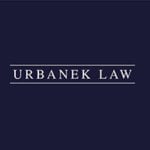-
Overview
Switzerland is a civil law country. Real estate is mainly governed by written laws on a federal level. However, Switzerland is divided into 26 cantons, each vested with legislative and executive authority in specific areas of law, insofar as such responsibilities are not expressly assigned to the Confederation. Moreover, for land register purposes, the cantons are further divided into districts. Therefore, the 26 cantons are responsible for setting up the land registries, the demarcation of the districts, the appointment and remuneration of officials and supervision arrangements. As a result, there are cantons with a public notary’s office, such as Zurich, and cantons with independent notaries such as Aargau or Bern.
-
What is the main legislation relating to real estate ownership?
The main legislation regarding real estate ownership is the Swiss Civil Code which contains regulations regarding ownership, easements, liens, mortgage certificates etc.
Furthermore, the Swiss Code of Obligations governs the contractual aspects of a transfer of real estate. In this regard, also the Act on the Acquisition of Real Estate by Persons Abroad (so-called Lex Koller), the Ordinance on the Land Register and the Act on Rural Land Rights need to be considered.
-
Have any significant new laws which materially impact real estate investors and lenders come into force in the past year or are there any major anticipated new laws which are expected to materially impact them in the near future?
The following revisions, which could in particular have an impact on real estate investors, came into force this year:
Capital Adequacy Ordinance (Basel III Reforms)
The revised Ordinance on the Capital Adequacy and Risk Diversification of Banks and Securities Firms, which implements the final Basel III standards into Swiss law, entered into force on January 1, 2025. The reform introduces a differentiated, risk-based approach to mortgage lending and capital requirements, with new classes of positions and higher capital buffers depending on the type and use of the financed property. The revised framework distinguishes between owner-occupied, non-profit and commercial properties. Owner-occupied residential property generally benefits from lower risk weightings, while higher capital requirements apply where more than 100 per cent of the property’s value is pledged. Residential property held by non-profit institutions is now treated as owner-occupied for regulatory purposes, thereby facilitating its financing. In contrast, heavily leveraged income-producing residential and commercial properties are subject to significantly higher risk weights. In particular, construction loans and loans secured by building land in the residential investment sector carry a 100 per cent risk weighting once the loan-to-value ratio exceeds 70 per cent. Similarly, commercial properties with rental income face higher capital requirements where the loan-to-value ratio exceeds 80 per cent. These measures are expected to tighten financing conditions and increase borrowing costs for highly leveraged investment and development projects. While the overall capital impact across the banking sector is expected to remain moderate, the profitability and pricing of mortgage loans will become more dependent on collateral quality, property category and use. The reform is expected to benefit borrowers in the owner-occupied and non-profit housing segments, whereas financing for investment properties and developments will become more constrained.
Swiss Civil Procedure Code
Revisions to the Swiss Civil Procedure Code, effective as of January 1, 2025, impacts real estate litigation by explicitly recognizing private expert opinions as admissible evidence, now categorized as documents. Previously, such opinions held limited value in court, as they lacked the impartiality of court-appointed expert opinions. Although they do not carry the same weight as court-appointed expert opinions, private expert opinions can now substantiate a party’s position and support its claims. This increases the procedural relevance of technical and valuation reports in real estate and construction litigation, particularly in disputes over defects.
Tenancy Law
The Ordinance on the Rent and Lease of Residential and Commercial Premises was partially revised with effect from October 1, 2025 to enhance transparency and simplify tenancy administration. Landlords must now indicate the reference interest rate and consumer price index from the previous tenancy on the official form for initial rent notification, applicable in cantons where the form is mandatory (Zurich, Geneva, Basel-Stadt, Lucerne, Zug, Fribourg, and parts of Neuchâtel and Vaud). The revision also simplifies staggered rent agreements, allowing landlords to notify pre-defined rent increases by simple written notice instead of using the official form. The reform is expected to impact lease administration in urban markets, increasing formal compliance requirements while enhancing transparency and legal certainty for tenants.
Climate Law
The Climate and Innovation Act and the revised CO₂ Act, both in force since January 1, 2025, form the centerpiece of the country’s net-zero strategy. The Climate and Innovation Act establishes the long-term objective of achieving climate neutrality by 2050, while the revised CO₂ Act sets interim emission-reduction targets of 50 per cent by 2030 (compared to 1990 levels) and imposes specific obligations on the building sector. Cantons must now implement and report technical measures such as the replacement of fossil-fuel heating systems, improved thermal insulation, and incentives for renewable-energy and district-heating solutions.
Nature and Cultural Heritage Law
The Nature and Cultural Heritage Act was amended with effect from August 1, 2025. The revision limits the right of environmental organizations to appeal for small-scale construction projects within building zones. The right of appeal is now excluded for developments with a gross floor area of less than 400 square meters, except for projects located in areas of national significance, such as protected townscapes or biotopes. The reform seeks to accelerate approval procedures for smaller residential developments while preserving effective protection for sites of cultural and ecological importance.
Energy Law
Amendments to the Energy Act and the Electricity Supply Act, together with their implementing ordinances, entered into force in stages from January 1, 2025. Under the new framework, solar installations with a minimum winter output are classified as being of national interest, requiring cantons to integrate them into their cantonal structure plans. Electricity suppliers must implement efficiency measures, and grid operators must reinforce networks to support decentralised generation. The revised Energy Act extends federal financial support for renewables until 2035, introduces a hydropower reserve to ensure supply security, and promotes the integration of solar systems in buildings. These measures expand Switzerland’s renewable-energy framework and have direct implications for property owners and developers.
The following revisions are a selection of relevant revisions for real estate investors scheduled to come into force next year or are anticipated to be enacted in the near future:
Work Contract and Sales Law
Amendments to the Swiss Code of Obligations entering into force on January 1, 2026 introduce significant improvements to the legal position of property owners and purchasers in connection with construction defects. Under the revised provisions, the statutory defect-notification period for both apparent and hidden defects is extended to 60 days from delivery of the work or discovery of the defect. These time limits may no longer be shortened by contract, ensuring uniform and predictable defect-notification standards across the construction industry. Furthermore, the parties’ ability to exclude or waive the right to repair (rectification) is now materially restricted. Contractual clauses purporting to exclude this right are invalid in principle, particularly in the context of construction contracts and the sale of newly built properties or those completed within two years prior to sale. The new provisions also harmonize the treatment of warranty rights between construction contracts and contracts for the sale of newly built or recently constructed properties, thereby closing previous legal gaps. The reform encourages greater diligence and quality assurance among contractors and developers and will have a substantial impact on contractual practice, particularly with respect to the drafting of warranty, limitation-of-liability and defect-notification clauses in development, construction and purchase agreements.
Building Contractor’s Lien
A targeted amendment to the Swiss Civil Code (specifically Article 839(3)), will enter into force on January 1, 2026, refining the procedure by which property owners may avert the registration of a building contractor’s lien. Under the revised provision, owners may prevent the inscription of such lien by providing a sufficient security covering the principal claim and default interest for ten years. This statutory clarification replaces prior Federal Supreme Court practice requiring security for an unlimited duration of interest, a standard widely criticized as impractical. The reform reduces financial exposure for property owners and lenders, streamlines the release procedure, and enhances legal certainty for all parties involved in construction projects.
Spatial Planning Law
The second stage of the Spatial Planning Act revision and the related amendment to the Spatial Planning Ordinance will enter into force in two stages on January 1, and July 1, 2026. The reform strengthens restrictions on construction outside designated building zones and introduces a nationwide limit of 2 per cent for any increase in buildings or sealed surfaces compared with September 2023 levels. Cantons exceeding this limit must compensate by demolishing existing structures or removing sealed surfaces, with partial federal co-financing available. Furthermore, a new territorial approach allows cantons to reflect regional specificities and authorize limited deviations, such as the conversion of redundant agricultural buildings into housing or tourism uses, provided compensatory measures are ensured. Hotels outside building zones may now expand up to 120 beds, and restaurants up to 100 seats, while agricultural zones remain prioritized for agricultural use. Cantons are granted five years from July 1, 2026, to integrate their strategies for stabilizing building activity outside building zones into their cantonal structure plans. The reform thus represents a significant tightening of spatial-planning controls with long-term implications for rural development, infrastructure projects and land-use management in Switzerland.
Taxation of Owner-Occupied Property
In September 2025, the Swiss voters approved the abolition of the taxation of the imputed rental value on owner-occupied property. The implementation of federal legislation is in preparation and expected to take effect from the 2028 tax year. The reform abolishes the inclusion of the imputed rental value, previously deemed income corresponding to approximately 60-70 per cent of market rent, in taxable income for principal and secondary residences. In parallel, deductions for maintenance expenses and value-preserving renovations will largely be abolished at federal level, subject to limited exceptions for the preservation of historical or protected buildings. Cantons may retain certain deductions for energy-efficiency measures until 2050. Interest-deduction rules will also be tightened. Furthermore, cantons will be authorized to introduce a compensatory property tax on secondary residences to offset the expected revenue shortfall. This reform will have long-term implications for private homeowners, as the traditional tax advantage of leveraged home ownership is progressively eliminated.
-
How is ownership of real estate proved and are ownership records available for public inspection?
All acquisition of land ownership must be recorded in the land register, hence the owner of every real estate is shown in the land register. Since the land register is assumed to be complete and correct and everyone may, in good faith, rely on it, the ownership is deemed to be proved with the entry of the owner in the land register and no further proof is necessary.
According to article 970 of the Swiss Civil Code, the land register is public, allowing individuals to access certain information without demonstrating a specific interest. This includes details such as the property’s description, ownership, and any encumbrances. For further information, e.g. excerpts regarding an encumbrance, a legally legitimate interest must be demonstrated. The extent of the right of access depends on the legitimate interests that have been credibly demonstrated, and the decision on this rests with the registrar.
-
Are there any restrictions on who can own real estate, including ownership by any foreign entities?
In Switzerland, it is the Swiss Civil Code which lays down the principles of ownership without providing any restriction as to the type of persons (natural or legal) who may acquire real estate. There is, however, the purported Lex Koller, which restricts the acquisition of residential properties and unbuilt land by so-called persons abroad or if the main part of the financing is provided by persons abroad. Special rules apply, among others, to main or secondary residences depending on whether the buyer is a citizen of the EU or not. Foreign nationals residing outside Switzerland, EU/EFTA citizens without a legal (permanent residence permit [B permit]) and actual residence, as well as non-EU/EFTA citizens without a legal (settlement permit [C permit]) and actual residence are considered persons abroad under Lex Koller.
Furthermore, foreign legal entities or those controlled by foreign nationals or legal entities qualifying as persons abroad are likewise deemed persons abroad under Lex Koller. However, commercial properties are excluded from the scope of the Lex Koller and can be freely acquired by persons abroad for the moment.
-
What types of proprietary interests in real estate can be created?
The Swiss Civil Code prescribes a numerus clausus of rights that can be created on real estate. Among the proprietary interests are the individual property (freehold), the co-ownership and the condominium ownership. Some easements also grant their beneficiary a quasi-proprietary right, like a building right or an usufruct.
-
Is ownership of real estate and the buildings on it separate?
No, in Switzerland the so-called principle of accession (“Akzessionsprinzip“) applies, according to which the ownership of land also extends to all objects connected with it (e.g. buildings or plants). To separate the ownership of real estate and the building thereon, a building right must be created. In such a scenario, there are two owners, one of the soil and one of the building thereon.
-
What are common ownership structures for ownership of commercial real estate?
Commercial real estate is mostly owned by legal entities, for practical as well as tax-related reasons. Certain commercial assets can be in condominium ownership but it is not common (rather, it usually applies for residential properties).
-
What is the usual legal due diligence process that is undertaken when acquiring commercial real estate?
If contemplating an asset deal, the buyer will usually like to start with an in-depth analysis of the plot(s) and its respective easements. If there is a risk of pollution, the seller will be asked to provide a corresponding report and, if required, the confirmation that the competent authority has approved the transfer of property. Other aspects of the legal due diligence include, among others, ongoing and past works in the building and the respective warranty rights. Conformity with the building permit, which is rather a technical issue, will need to be covered by a corresponding warranty in the deed of sale. The contractual review will cover the existing lease agreements and all related documents, as well as all existing service contracts (incl. janitor or facility services, building management, etc.) and any other contractual agreements with third parties. A list of any existing or potential disputes shall need to be provided by the seller.
In cases where the buyer or the seller are persons abroad, it should be determined whether the Lex Koller applies to the transaction. Finally, the possible tax implications will be analysed. Transfers of real estate are in principle not subject to VAT, but the parties can opt for VAT if and to the extent the space is not used for private purposes.
When contemplating a share deal, the legal due diligence will additionally include the review of the company related issues as well as a specific review of the transaction’s tax implications.
-
What legal issues (if any) are outside the scope of the usual legal due diligence process on an acquisition of real estate?
There are no legal issues per se which cannot be covered by usual legal diligence. Certain technical issues with legal implications are outside the scope of the usual legal due diligence process on an acquisition of real estate and will have to be analysed in close collaboration with the relevant experts so as to include the necessary covenants in the purchase agreement. Furthermore, a specific clause is usually included in order to guarantee that the seller will pay all the taxes pertaining to the sale of the asset (namely the real estate gains tax).
-
What is the usual process for transfer of real estate, and when does liability pass to the buyer?
The beginning of negotiations is usually indicated by the mutual signing of a non-disclosure agreement (NDA), followed by a letter of intent (LOI) by the parties. Hereinafter, a detailed due diligence, with regard to real estate or the real estate company, is carried out by the buyer. Often the seller grants exclusivity to the buyer during that time. In a structured selling process interested buyers are invited to first submit a non-binding offer and, after having admitted to carry out due diligence, a binding offer. Should the buyer after conducting a due diligence confirm its intention to acquire the real estate, and the parties have reached an agreement on the commercial terms, the parties will then enter into an asset purchase agreement or a share purchase agreement, depending on the transaction structure.
In case of a public tender offer, which is supported by the board of directors of the target company (a friendly takeover), the offeror and the target company often enter into a transaction agreement followed by the launch of a public tender offer.
It needs to be noted that the purchase agreement regarding real estate is only valid if it is executed in the form of a public deed in front of a notary public. The transfer of title, however, only occurs upon the respective entry into the “journal” (Tagebuch) of the land register, provided, however, that the application is later registered in the “main register” (Hauptbuch) of the land register or, in case of a transfer of assets pursuant to the Swiss Merger Act with the entry of such transfer in the commercial register (in the latter case the following entry of the transfer in the land register has only a declaratory effect). Therefore, after the signing of the purchase agreement, the notary public and the parties to the agreement will have to submit it to the land registry or commercial register, respectively, which then enters the transaction in the land register or commercial register, respectively.
In Switzerland, the date of transfer of liability, or the transfer of benefits and risks (Übergang von Nutzen und Gefahr) can be agreed between the parties. Usually, this date corresponds to the date of the entry of the real estate transfer in the “journal” (Tagebuch) of the land register.
-
Is it common for real estate transfers to be effected by way of share transfer as well as asset transfer?
Real estate may be transferred either by way of a share or asset deal. Both type of deals are very common for the transfer of real estate in Switzerland. It should, however, be noted that the acquisition of real estate by way of share deal does not allow to avoid the application of the Lex Koller for persons abroad (see question 5 above). It should also be noted that certain investors (e.g. certain Swiss investment funds) are excluded from doing share deals.
-
On the sale of freehold interests in land does the benefit of any occupational leases and income derived from such lettings automatically transfer to the buyer?
As a rule, in case of the sale of freehold interests in land, lease agreements will automatically be transferred to the new owner. Thus, benefits of any occupational leases and income derived from such lettings transfer to the buyer and new owner of the property. However, the new owner has the right to terminate a lease on residential or commercial premises as of the next legally admissible termination date if it claims an urgent need to use such premises itself. If the new owner terminates the lease sooner than it is permitted under the lease agreement, the previous owner can be held liable for losses incurred by the tenant.
-
What common rights, interests and burdens can be created or attach over real estate and how are these protected?
Common rights, interests and burdens include easements, real burdens, usufruct and other personal servitudes, such as construction rights, rights of way, pipeline rights, construction restrictions or closer or boundary construction rights. Such rights are generally created by public deed executed in front of a notary public and by entry in the land register. Once registered in the land register, those rights are visible for third parties and can be easily proven.
-
Are split legal and beneficial ownership of real estate (i.e. trust structures) recognised?
Swiss Law does not know a legal principle comparable to the common law concept of trusts; a trust cannot be established under Swiss law. However, Switzerland recognises for instance the Hague Trust Convention, hence foreign trust relationships can under certain conditions be registered in the land register. If trusts under foreign law are recognised under Swiss law, it must be noted that a trust relationship that is not annotated in the land register in such a way may be considered invalid against bona fide third parties.
Therefore, any beneficial ownership is only of a contractual nature under Swiss law, which means, in particular, that the right of the beneficiary is not based on an in rem title to real estate but only on a contractual claim against the holder of the real estate rights. If that holder disposes of the real estate in violation of the contractual provisions, the beneficiary is limited to a claim for damages.
Furthermore, as soon as a foreign party is involved on the buyer side, the Lex Koller may apply (see question 5 above).
-
Is public disclosure of the ultimate beneficial owners of real estate required?
The identity of the direct owners of real estate is public information that can be freely consulted in the land register (available on the internet in most Swiss cantons; see question 4 above). Where the owner is a legal entity, the identity of the ultimate beneficial owners must be known internally by the corporate bodies and its disclosure may be required by the cantonal or federal authorities, when there is a doubt as to a potential application of the Lex Koller (see question 5 above). However, this information is not made public.
-
What are the main taxes associated with real estate ownership and transfer of real estate?
If real estate or the majority (in certain cantons even a minority stake) of the shares in a Swiss real estate company is acquired, may be subject to real estate transfer tax of between 1% and 3%, depending on the canton where the property is located. As the transfer tax is a cantonal tax, not only the tax rate may vary from canton to canton; certain cantons do not apply a real estate transfer tax at all, such as Zurich. If a transfer tax applies, the tax is usually payable by the buyer, however, the buyer and seller are often jointly and severally liable for the real estate transfer tax. In certain cantons, tax laws may foresee a lien on the property to secure the transfer taxes.
Furthermore, a tax is due on the gain realised from the transfer of real estate. In some cantons, such gains are subject to a property gains tax specifically levied on real estate transfers, regardless of whether the assessed taxpayer is a natural persons or legal entities. However, in most cantons, a distinction is made between natural person and legal entity regarding the taxation of these gains. For natural persons, the gain is subject to a property gains tax. In contrast, for legal entities, these gains are generally included in their regular corporate profits and taxed through the profit tax rather than a separate property gains tax. In both tax regimes, this obligation falls on the seller.
As a rule, transfers of real estate are excluded from VAT. However, if the real estate is not used for private purposes, it is possible to opt for VAT.
In addition, the owner of real estate is obligated to pay income and property taxes.
-
What are common terms of commercial leases and are there regulatory controls on the terms of leases?
The legal basis for leases is regulated in the Swiss Code of Obligations. Furthermore, the Ordinance on the Rent and Lease of Residential and Commercial Premises applies. In principle, tenancy law is tenant-friendly, hence there are certain mandatory provisions in favour of the tenant. However, especially in the case of commercial leases, the parties regulate their rights more detailed in the lease agreement and the landlord ensures that its rights are improved compared to the law wherever possible. The common terms include, among others:
- Length of term: commercial leases typically last for a fixed term of five or ten years, possibly with a prolongation option of one (or two) additional five-year term(s). If an indefinite period applies, a notice period of at least six months applies.
- Rent and ancillary costs: the different possible ancillary costs must be listed in detail in the lease agreement.
- Rent increases: the parties often agree on indexed rents based on the Swiss consumer price index.
- Tenant’s right to transfer or sub-lease: subject to the landlord’s approval, the tenant is entitled to transfer the lease or to sublet the premises.
- Insurance: the tenant must often provide liability insurance.
- Repairs and maintenance: generally speaking, and as a basic rule, the landlord is responsible for maintenance and major repairs; however, exceptions may apply with leases which come close to double and triple net lease agreements.
-
What remedies are commonly available for landlords in the event of a tenant breach of a commercial lease?
In cases of a tenant’s breach of a commercial lease, landlords have several remedies under Swiss law. The remedies available depend on the nature and severity of the breach of a commercial lease:
- Ordinary Termination: Landlords may terminate an indefinite lease agreement, provided the termination is not abusive and the notice periods and termination dates specified in the lease are respected. However, commercial leases frequently have a fixed term, which generally limits the applicability of this option.
- Extraordinary Termination: Landlords can terminate the lease – including fixed-term commercial leases – for significant breaches, such as non-payment of rent, violation of duty of care, important reasons that render continuation unreasonable, tenant bankruptcy, or urgent personal use by a new owner following the purchase of the rental property.
- Claim for Damages: Landlords may claim damages for direct financial loss resulting from the tenant’s breach, such as lost rental income, re-letting expenses, or repair costs.
- Lien on Tenant’s Assets: The landlord has a right of lien on movable property located within the rental object as security for unpaid rent, extending, under specific conditions, to assets of any sub-tenants.
-
How are use, planning and zoning restrictions on real estate regulated?
The regulation of use, zoning and planning is performed on four levels (federal, cantonal, regional and local) in Switzerland. On each level, respective laws exist. Environmental protection is mainly addressed on a federal level whereas the use of a particular plot is mainly regulated on a local level.
-
Who can be liable for environmental contamination on real estate?
Switzerland generally applies the polluter-pays principle. However, according to the Contaminated Sites Ordinance, the current holder of a polluted plot is responsible for carrying out the investigation, monitoring and remediation measures. Pursuant to article 32d of the Federal Act on Environmental Protection, any person who is responsible simply as the proprietor of the site does not bear any costs if, by exercising the required care, it could not have had any knowledge of the pollution. The public authority concerned bears the share of the costs of any person responsible who cannot be identified or is unable to pay. However, a different regime applies if the polluted site does not require immediate remediation, i.e. if the obligation to dispose of polluted excavation material is linked to a construction project (as opposed to the normal use of the plot). In such a case, the right of recourse against a third party is subject to very stringent conditions.
In case of the sale of real estate assets, the purchase agreement usually contains an exclusion of guarantee from the seller regarding the quality of the land. Such an exclusion of guarantee is valid unless the Seller has intentionally misrepresented the factual or legal situation.
-
Are buildings legally required to have their energy performance assessed and in what (if any) situations do minimum energy performance levels need to be met?
In Switzerland, the assessment and management of the energy performance is regulated on a cantonal level. Generally, building regulations, energy legislations and regulations on environmental protection contain provisions on, among others, energy usage, thermal insulation of buildings and on fuels and combustibles. The cantonal energy legislations may also encompass provisions on the recording of individual heat consumption for heating and hot water and the minimum energy performance of buildings.
In general, it is not mandatory for the owners to perform respective tests.
-
Is expropriation of real estate possible?
The right to property is enshrined as a fundamental right in the Swiss Federal Constitution. Real estate expropriation may nevertheless occur in exceptional cases, e.g. for infrastructure works that are in the interest of the Confederation or of a considerable part of the country, as well as for other purposes of public interest recognized by a federal law. In such cases, expropriation may, however, only be carried out to the extent necessary to achieve the aim pursued (proportionality) and subject to full compensation.
-
Is it possible to create mortgages over real estate and how are these protected and enforced?
Mortgage may be created on real estate in the form of a mortgage contract (hypothèque, Grundpfandverschreibung) or a mortgage certificate (cédule hypothécaire, Schuldbrief), the latter of which is considered a title and can be created as dematerialized mortgage note or in registered or bearer form. To be effective, the mortgage must be created in the form of a public deed and recorded in the land register.
The enforcement of the mortgage is carried out through the Debt collection and Bankruptcy Office, which is responsible for realizing the real estate at the request of the creditor, if the debtor of the mortgaged debt does not meet its obligations.
-
Are there material registration costs associated with the creation of mortgages over real estate?
The costs associated with the creation of mortgages comprise notary fees and land register emoluments, both of which are different in each canton, but generally consist of a percentage of the mortgage amount.
-
Is it possible to create a trust structure for mortgage security over real estate?
See question 15 regarding trust structures in Switzerland. Such structures are hardly seen in Switzerland in connection with real estate; possible structures in connection with mortgages are third-party pledges
Switzerland: Real Estate
This country-specific Q&A provides an overview of Real Estate laws and regulations applicable in Switzerland.
-
Overview
-
What is the main legislation relating to real estate ownership?
-
Have any significant new laws which materially impact real estate investors and lenders come into force in the past year or are there any major anticipated new laws which are expected to materially impact them in the near future?
-
How is ownership of real estate proved and are ownership records available for public inspection?
-
Are there any restrictions on who can own real estate, including ownership by any foreign entities?
-
What types of proprietary interests in real estate can be created?
-
Is ownership of real estate and the buildings on it separate?
-
What are common ownership structures for ownership of commercial real estate?
-
What is the usual legal due diligence process that is undertaken when acquiring commercial real estate?
-
What legal issues (if any) are outside the scope of the usual legal due diligence process on an acquisition of real estate?
-
What is the usual process for transfer of real estate, and when does liability pass to the buyer?
-
Is it common for real estate transfers to be effected by way of share transfer as well as asset transfer?
-
On the sale of freehold interests in land does the benefit of any occupational leases and income derived from such lettings automatically transfer to the buyer?
-
What common rights, interests and burdens can be created or attach over real estate and how are these protected?
-
Are split legal and beneficial ownership of real estate (i.e. trust structures) recognised?
-
Is public disclosure of the ultimate beneficial owners of real estate required?
-
What are the main taxes associated with real estate ownership and transfer of real estate?
-
What are common terms of commercial leases and are there regulatory controls on the terms of leases?
-
What remedies are commonly available for landlords in the event of a tenant breach of a commercial lease?
-
How are use, planning and zoning restrictions on real estate regulated?
-
Who can be liable for environmental contamination on real estate?
-
Are buildings legally required to have their energy performance assessed and in what (if any) situations do minimum energy performance levels need to be met?
-
Is expropriation of real estate possible?
-
Is it possible to create mortgages over real estate and how are these protected and enforced?
-
Are there material registration costs associated with the creation of mortgages over real estate?
-
Is it possible to create a trust structure for mortgage security over real estate?





























